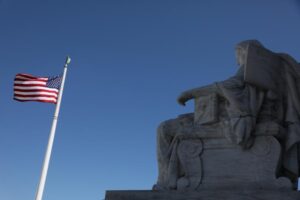There are some people who are puzzled by the marches for racial justice. A man who works in the oil fields said recently in Tulsa: “Everyone there is the same regardless of color. If you can do the work, you stay; if you can’t, you go home.” But the problem, now as always, is much more complex than that.
When we moved from New Mexico to Colorado in the 1940s, the only place we could find work was in the fields. The practice of denying Hispanics employment anywhere else was justified by the belief that we were incapable of anything other than common labor. The farmer we worked for told us that, no matter how much schooling we got, we would end up in the fields planting, thinning, hoeing and harvesting sugar beets and other vegetables.
Such views were even common in the church, where for a long time Hispanics were thought to be unfit to become priests. Urban J. Vehr, then the archbishop of Denver, once said he had no Mexicans in the seminary because they did not meet his standards. Of course, now we have many priests, sisters, brothers and bishops who have distinguished themselves.
In my family, we persevered in school and, after graduating from high school in 1948, I completed a year’s course in accounting, took a civil service exam and was hired as an assistant fiscal accounting clerk by Rocky Mountain National Park in Estes Park, Colorado. I loved the work and did it well.
After two years, however, I ran into a roadblock. The chief clerk became ill and after a few months, retired. My boss, a man named Wallace O. McCaw, moved up to chief clerk and I assumed McCaw’s duties while continuing to do mine. Finally, after several more months, McCaw told me the vacancy was being filled.
He told me a young man on the park service road crew with no education or experience in accounting would soon be joining us. McCaw said — I will never forget his words — “When our new hire arrives, I want you to teach him all you know, and, when he learns it, he is going to be your boss.” I was appalled, and asked:
“Since I am doing your work as well as mine and know everything about the accounting system, why can’t I be his boss?”
“Because that is the way it is,” he said. I decided then and there that I would not be a part of that scheme. Soon after, I submitted my resignation and enrolled at Colorado State University, where I discovered that journalism was the best career choice for me.
The experience at Rocky Mountain National Park could have left me bitter, but fortunately, I subsequently found that McCaw’s view was not shared by other park employees.
After my freshman year, I applied for summer work at the park service and, to my surprise, was offered not just a job but a crew leader’s position in a program to combat a blister rust disease that was killing the white pine forests in the park. In addition, I was trained as a forest firefighter and selected as a fire line foreman when we were flown to Yellowstone National Park to douse a huge forest fire.
I did that every summer, the last one as the overall onsite supervisor of the blister rust control program in Glacier National Park in Montana. Then when I was in graduate school and got married, my bride and I spent the delightful summer manning a fire lookout on an 11,000-foot-high mountain at Rocky Mountain National Park.
As my mother always said, God takes care of us.
Copyright © 2020 Catholic News Service/U.S. Conference of Catholic Bishops
